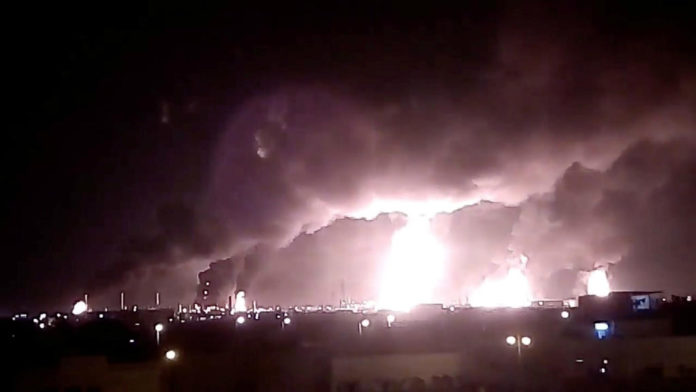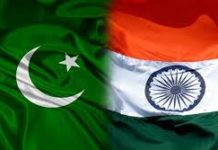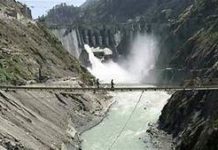By Muhammad Luqman
Pakistan has strongly condemned the drone attacks on Saudi oil processing facility Buqyaq and the Khurais oil field that resulted in fire, material damage and disruption of its operation.
“Such acts to sabotage and disrupt commercial activities causing fear and terror cannot be condoned,” a spokesman of Pakistan’s Foreign Office said.
Pakistan hopes that such attacks will not be repeated given the potential damage they can cause to the existing peaceful environment in the region, he added.
“Pakistan reiterates its full support and solidarity with the brotherly Kingdom of Saudi Arabia against any threat to its security and territorial integrity,” the spokesman said.
The tensions between Saudi Arabia and Iran have touched new heights after drone attacks on kingdom’s two major oil plants.
According to media reports, Yemen’s Houthi group has claimed the responsibility for the worst attack since the Houthi-Saudi Arabia conflict started in 2015,
The attacks have cut the kingdom’s output down by 5.7 million barrels per day (bpd), according to a statement from state-run oil company Saudi Aramco.
The cut in the production has also led to speculations of rise in the prices of the crude oil in the international market,
Saudi Arabia is the world’s biggest exporter, shipping more than 7 million barrels of oil to global destinations every day, and for years has served as the supplier of last resort to markets.
US Secretary of State Mike Pompeo has put the blame on Iran, writing on Twitter that there was “no evidence the attacks came from Yemen”.
“Amid all the calls for de-escalation, Iran has now launched an unprecedented attack on the world’s energy supply,” Pompeo said.
“Tehran is behind nearly 100 attacks on Saudi Arabia while Rouhani and Zarif pretend to engage in diplomacy,” Pompeo wrote on Twitter. “Amid all the calls for de-escalation, Iran has now launched an unprecedented attack on the world’s energy supply. There is no evidence the attacks came from Yemen.”
Saudi Crown Prince Mohammed bin Salman told US President Donald Trump by telephone that Riyadh had the will and capability “to confront and deal with this terrorist aggression”, according to Saudi state news agency SPA.
The United States condemned the attacks and Trump told the crown prince that Washington was ready to work with the kingdom to guarantee its security, according to the White House. The US Department of Energy also said it was ready to release oil from its strategic petroleum reserve if necessary.
Tehran is behind nearly 100 attacks on Saudi Arabia while Rouhani and Zarif pretend to engage in diplomacy. Amid all the calls for de-escalation, Iran has now launched an unprecedented attack on the world’s energy supply. There is no evidence the attacks came from Yemen.
— Secretary Pompeo (@SecPompeo) September 14, 2019
Responding to US administration’s criticism , Iran has warned that all the American bases and aircraft carriers in the region are within the range of Iranian missiles.
“Everybody should know that all American bases and their aircraft carriers in a distance of up to 2,000 kilometres around Iran are within the range of our missiles,” the head of Iran’s Revolutionary Guards Corps Aerospace Force Amirali Hajizadeh said on Sunday.
The semi-official Tasnim news agency also quoted him saying that “Iran has always been ready for a “full-fledged” war”, without mentioning Saturday’s attacks in Saudi Arabia. One of the plants attacked is the world’s biggest petroleum processing facility.
Saudi Arabia, leading a Muslim coalition that intervened in Yemen in 2015 against the Houthis, has blamed regional rival Iran for previous attacks, which Tehran denies
Coalition spokesman Colonel Turki al-Malki said an investigation had been launched into who planned and executed the strikes. He said the Western-backed alliance would counter threats to global energy security and economic stability.
Saturday attack was the latest in a series of Houthi missile and drone strikes on Saudi cities that had largely been intercepted, but have recently hit targets, including Shaybah oilfield last month and oil pumping stations in May. Both those attacks caused fires but did not disrupt production.
“This is a relatively new situation for the Saudis. For the longest time they have never had any real fears that their oil facilities would be struck from the air,” Kamran Bokhari, founding director of the Washington-based Center for Global Policy said.















